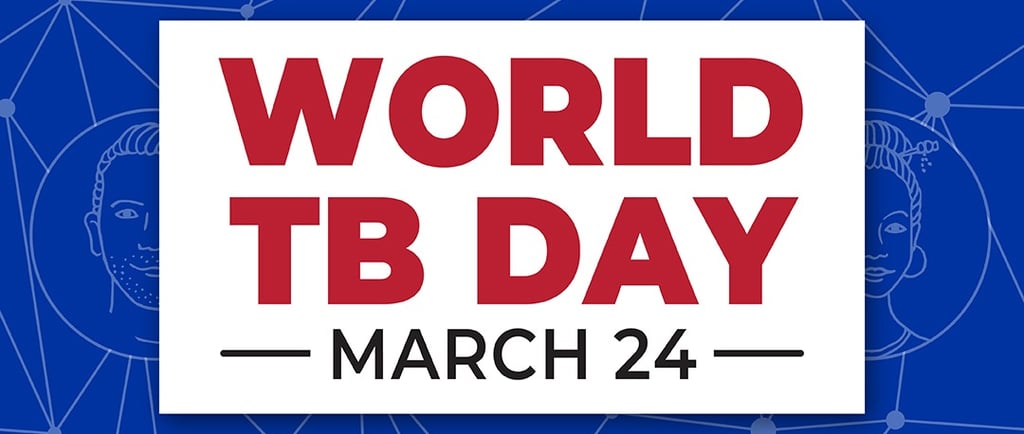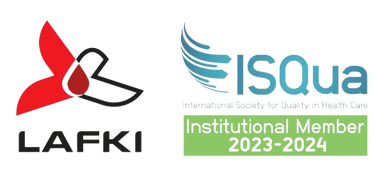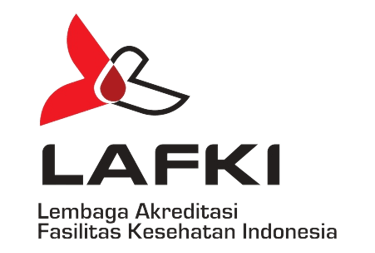Strengthening Indonesia's Response to Tuberculosis: Integrating Global and Local Strategies
By dr. Friedrich Max Rumintjap, Sp.OG(K), MARS, FISQua, FIHFAA, FRSPH


Tuberculosis (TB) is a global health challenge that demands collective action and commitment. In Indonesia, the Indonesian Health Facility Accreditation Agency (LAFKI) plays a crucial role in ensuring the quality of health services, including in the management of TB. Through the integration of global strategies, as described in World Tuberculosis Day 2024 and the Global Tuberculosis Report 2023, with adaptive local approaches, Indonesia is striving to strengthen its response to TB.
Keys to Success in Welcoming a TB-Free Indonesia
TB management is not only about treatment, but also prevention and a deep understanding of the social determinants of this disease. The Global Tuberculosis Report 2023 states that, despite progress, TB is still the second largest cause of death from infectious agents after COVID-19. This data emphasizes the need for more integrated and synergistic action, combining global and local efforts.
LAFKI, through its health facility accreditation program, ensures that hospitals and clinics in Indonesia meet high service standards, including in the management of TB. This is a vital step in ensuring access to quality diagnosis and treatment, which is one of the pillars of WHO’s End TB strategy.
Towards Global Targets with Local Approaches
From the analysis of data and recommendations in the Global Tuberculosis Report 2023, it is clear that achieving global targets requires adaptation and implementation of strategies that are appropriate to local contexts. For example, community empowerment and awareness-raising can be more effective if tailored to local customs and cultures.
LAFKI has a strategic role in facilitating dialogue between stakeholders at the local and national levels, ensuring that global recommendations are translated into concrete actions that resonate with the specific needs of the Indonesian people.
LAFKI’s Role in Supporting National and Global Targets
The following steps can be taken to strengthen LAFKI’s role in the TB response in Indonesia:
Enhancing Specific TB Accreditation Standards
Develop specific accreditation standards for TB management, ensuring that health facilities have effective protocols for diagnosis, treatment, and prevention.
Multisectoral Collaboration
Facilitating collaboration between health, education, and social sectors to address the social determinants of TB, in line with the third pillar of WHO’s End TB strategy.
Innovation and Research
Encourage health facilities to participate in research and development of innovations in TB management, including the use of digital technology for patient monitoring and education.
Advocacy and Awareness
Conduct campaigns with communities and government agencies to raise awareness of TB, encourage early detection and complete treatment.
Integration for Action
In addressing TB, integration of global strategies with smart local implementation is key. LAFKI, with its role in ensuring the quality of health services, is at the forefront of efforts towards a TB-free Indonesia. By adopting a holistic approach that includes prevention, treatment, and addressing the social determinants of the disease, and leveraging innovation and research, Indonesia can accelerate its steps towards achieving national and global targets.
Weaving Success from Diversity of Approaches
Indonesia’s geographical and cultural diversity demands a flexible and adaptive strategy in TB management. Reflection on global data and recommendations must be balanced with a deep understanding of the local context. LAFKI, through close collaboration with stakeholders at all levels, can play a key role in integrating this diversity into a coherent and effective strategy.
Addressing Challenges with Innovation
The challenges in TB management in Indonesia, such as vast and isolated geography, unequal access to health care, and social stigma, require innovative solutions. LAFKI can support the development and adoption of new technologies in TB diagnostics and treatment, as well as digital platforms for patient education and monitoring. Innovation in outreach and advocacy is also important to address the stigma and discrimination that often hinder TB management efforts.
Building a Strong Collaborative Network
Synergy between sectors and levels of government is a strong foundation for tackling TB. LAFKI can act as a liaison in this collaborative network, facilitating the exchange of information, knowledge, and resources. Close collaboration with communities, NGOs, and the private sector will strengthen TB prevention and treatment efforts, as well as ensure social and economic support for patients and their families.
Towards a TB-Free Future
The journey towards a TB-free Indonesia is a long one that requires commitment, innovation, and collaboration from all parties. LAFKI, with its role in improving the quality of health services.


